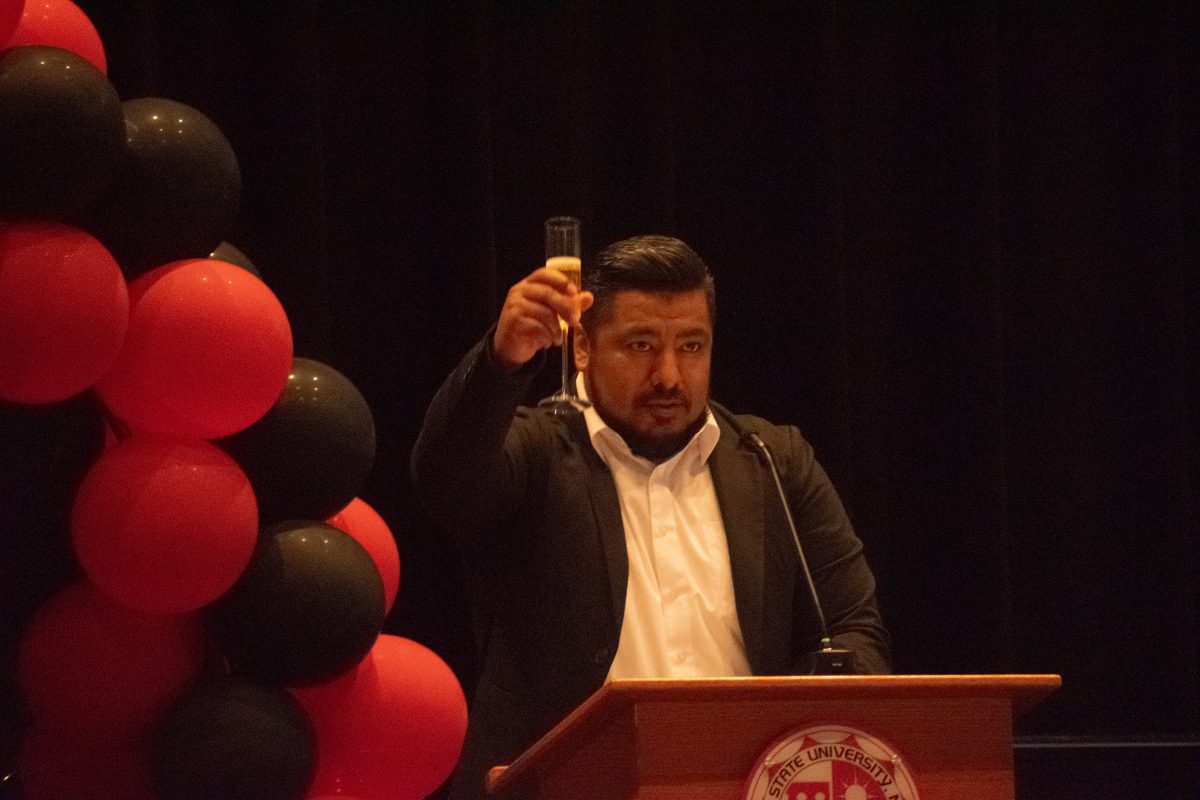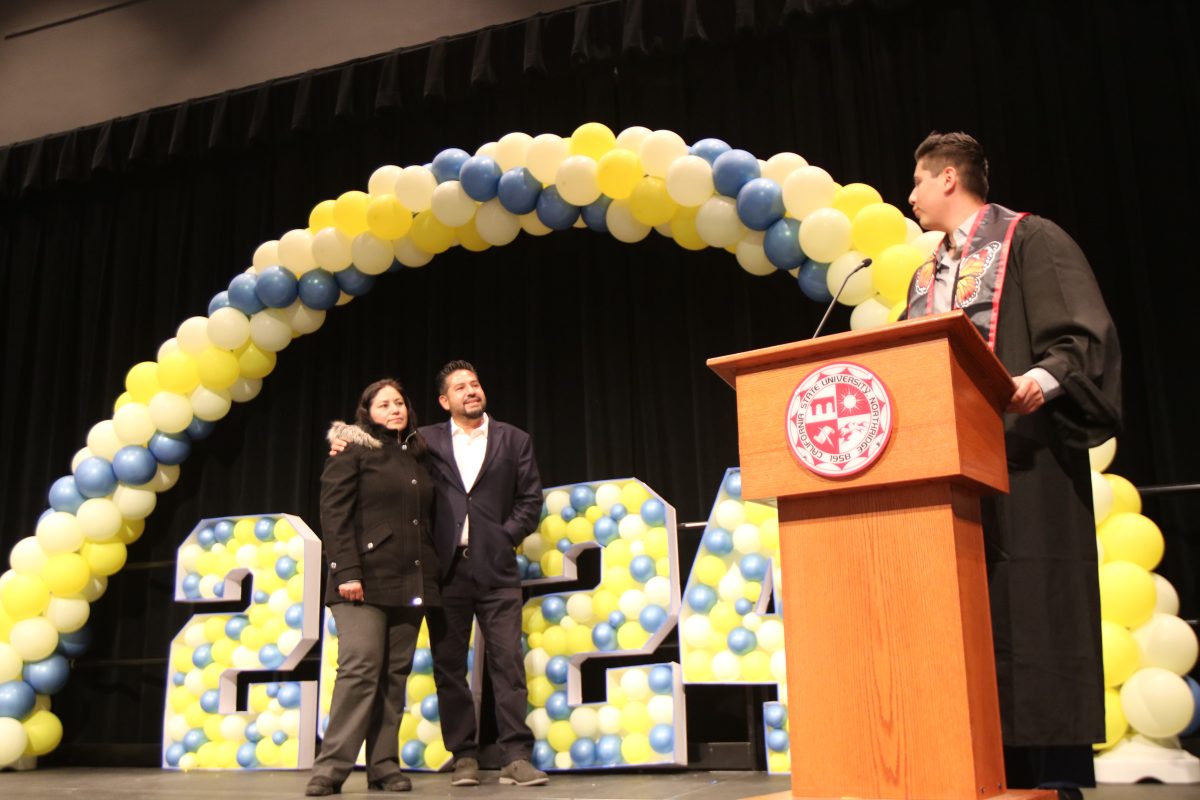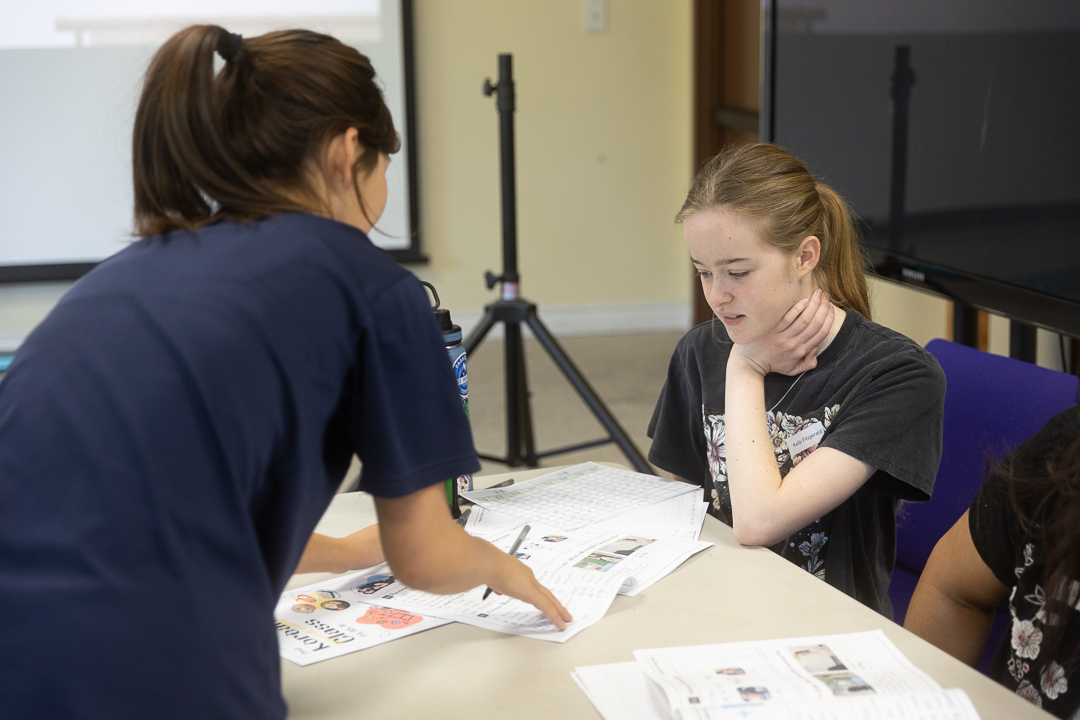Despite California State University Northridge’s ban on all recruitment and pledging activities, Phi Delta Epsilon, a co-ed medical fraternity, were able to host four rushing activities between Feb.11-14.
Last fall, CSUN issued a “cease and desist” to all pledging activity after a possible hazing incident involving Pi Kappa Alpha. However, according to Agustín Garibay, activities coordinator at the Matador Involvement Center, Phi Delta Epsilon is not a fraternity.
“Phi Delta Epsilon is a co-ed, pre-medical fraternity, which takes more of the role of an honor society/fraternity on campus,” said Garibay. “Social fraternities and sororities, which constitute what people might call Greek life on campus, are the ones who have received that initial notification back in the fall semester.”
Due to Phi Delta Epsilon’s title of honor society, they are excluded from the ban on pledging.
“The way we perceive student organizations is that they are different categories,” Garibay said.
Phi Delta Epsilon president Garrett Arii, senior biology major, also maintains the co-ed medical fraternity is different in many aspects.
“A lot of the ways that we’re different [is] we’re more so kind of like an honor society or a professional fraternity, is what they call it,” said Arii. “So in that sense we are dry, 100 percent dry. No liquor, no alcohol, drugs — nothing of that kind is allowed for us because we are professional and we’re geared more for finding future physicians at CSUN.
By being more career orientated, Arii said, as opposed to a lot of sororities and fraternities that are “more broad,” Phi Delta Epsilon are “strictly focused on future physicians.”
Arii said Phi Delta Epsilon only takes on new members with aspirations to be a doctor or a physician. Members are preferred to be pre-med or follow the pre-med path. Members are also required to have a minimum 3.0 GPA.
“That’s how we’re sort of distinguished from social fraternities and sororities,” said Arii, “so that’s one of the biggest reasons why we’re allowed to rush and a lot of social sororities and fraternities are not. “
While Phi Delta Epsilon officials might say they are not technically a fraternity or sorority, they seem to look the part. Phi Delta Epsilon uses Greek lettering in its emblem, and uses the same recruitment activities as other Greek societies on campus. At other schools such as UCLA, Phi Delta Epsilon is labelled as a “fraternity,” and University of California, Riverside, asserts their chapter takes “pride in our close camaraderie and unparalleled diversity.”
All students organizations are allowed to hold fundraising, said Garibay, academic and social events on and off campus in order to promote career growth among students. That includes fraternities, sororities and honor societies.
Due to its title and strict policies, Phi Delta Epsilon was never ordered to halt any of its pledging activity.
“Pretty much we were never on probation from MIC,” said Arii. “We were never told to halt activity by the MIC, ever, since our chapter was founded here at CSUN in 2007.”
Garibay said that Phi Delta Epsilon is not the only student organization on campus that is accepting new members.
Junior and chemistry major Jane Odango, secretary of risk management, Phi Delta Epsilon implements a strict no-hazing policy
“We have zero tolerance hazing policy, which is why we were able to receive prior approval from campus to continue to recruit and rush members this semester,” said Odango. “We don’t even refer to them as pledges as other fraternities and sororities do.”
Garibay’s office makes sure the students involved with these organizations are safe.
“We do work with all student organizations to ensure the safety and livelihood of all our students on campus are being protected and used as a vehicle to inform them on proper intake procedures,” said Garibay. “If [students] feel like something, an activity that is being done to the new incoming members looks like hazing, feels like hazing we definitely want to address that with those organizations because we definitely take that issue seriously.”
Phi Delta Epsilon’s executive office did not return calls for comment.









